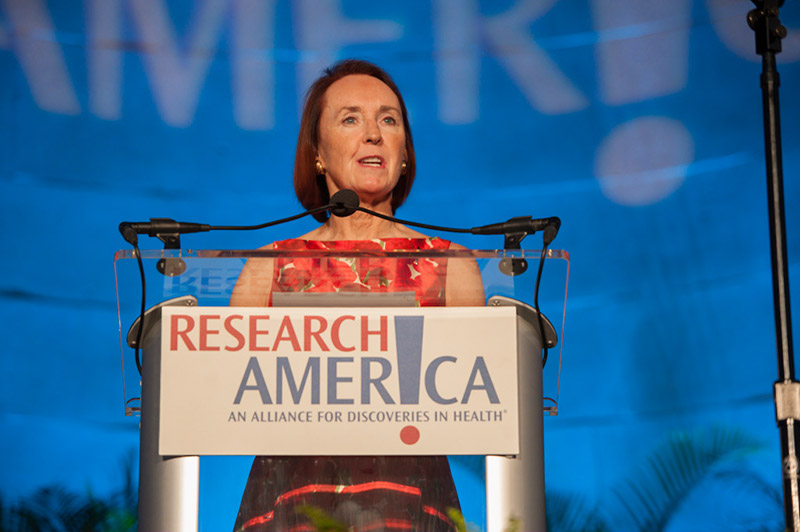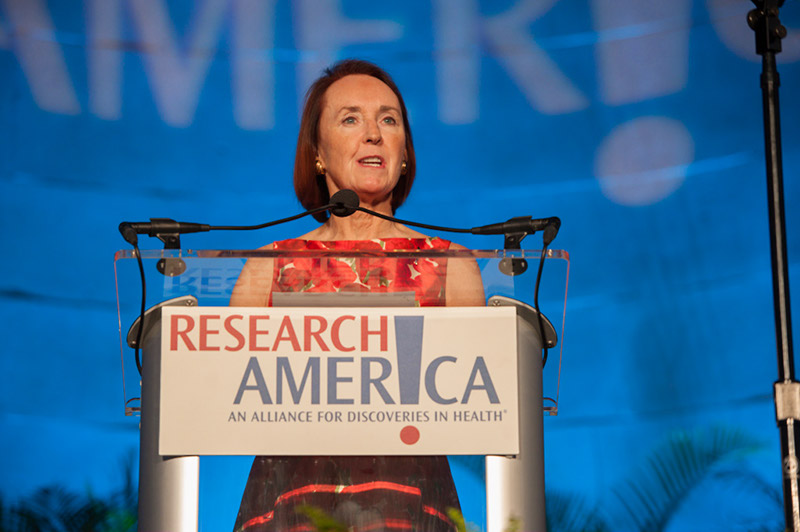 Dear Research Advocate,
Dear Research Advocate,
It’s tempting to feel overwhelmed and/or helpless in the new year given headlines of disease, dysfunction, and discord. But even as Omicron exacts a toll and Congress struggles for consensus, it is critical to keep in mind that more unites than divides us.
In the words of Dr. Francis Collins in an NPR interview last month, “Medical research should never be partisan… You want to find answers to medical problems that are threatening yourself or your family or your community or your constituents.
We’re all in this together, wanting solutions to what ails us. To overcome health threats that affect us all, we must stay united in common cause to raise the priority of supporting research and development. And we must act now.
On the Hill: As advocates for research, one of our first unified acts for the year must be to urge Congress to complete the FY 2022 appropriations process:
tweet congressional leadership. Today is
day 97 of using continuing resolutions to perpetuate an old budget that fails to meet the health needs of the nation. The current CR is set to expire on February 18. Congress should not punt its responsibilities further down the calendar.
The Senate HELP Committee will
hold a hearing on January 12 to vote on the nomination of Robert Califf, MD, as FDA Commissioner.
We strongly support Dr. Califf to serve again as Commissioner and urge Congress to move quickly to confirm his nomination.
Research Policy Complexities: The
recent conviction of Charles Lieber, PhD, on the failure to disclose his ties to China has reignited concerns over how to effectively protect U.S. intellectual property and at the same time not unduly limit international research collaboration and cooperation.
Government efforts to counter attempts by foreign countries to appropriate U.S. S&T intellectual property may have unintended impacts. A
new report from the American Physical Society offers recommendations aimed at “reformulating current research security policies, recommitting the United States to open science and collaboration, and increasing our ability to attract and retain international talent.”
Keep your eye on the Weekly Letter and your inbox for an invitation to a February Alliance Member event on this important and complex topic.
Improving Clinical Trials: Modernizing clinical trials, including fostering diversity, ease of access, and trial designs that accommodate on-the-ground realities like small patient populations, has, over the years, proven an elusive goal. Now, however, t he COVID-19 pandemic and broader global health concerns are driving innovation and creating fresh momentum for systemic change.
Two bipartisan bills signal congressional interest in addressing clinical trial challenges and opportunities this year: the 21st Century Cures 2.0 Act (
H.R.6000) in the House and the DIVERSE Trials Act (
S.2706) in the Senate. (In November, Research!America
signed on to a letter from ACS-CAN, which encourages congressional committee leaders to prioritize the DIVERSE Trials Act.)
We’re keeping an eye out for relevant findings and recommendations, like these:
- A Science article looks at ways the pandemic response is transforming clinical trials to be faster, nimbler, and more inclusive — and how these changes may become sustainable.
- In late December, the FDA announced its first approval of “a long-acting HIV prevention medication.” This milestone in HIV/AIDS prevention was empowered by a global clinical trial network, reinforcing the importance of building networks to tackle other global infectious threats, very much including pandemics.
- We expect the release early this year of a GAO report on barriers to participation in federally funded cancer clinical trials by traditionally underrepresented populations called for by Congressman Kweisi Mfume (D-MD) in the Henrietta Lacks Enhancing Cancer Research Act (H.R.1966).
The Science Behind Obesity: Join us on January 20 at 3 p.m. ET for our virtual briefing and interactive discussion investigating the multifaceted obesity crisis, including its relevance to health disparities, and the role of research and development. Research!America Board Member Guillermo (Willy) Prado, PhD, Dean of the Graduate School at the University of Miami, will moderate a panel of leading experts.
ICYMI: Watch today’s fascinating conversation with Eric Green, MD, PhD, Director, National Human Genome Research Institute, NIH. Dr. Green shared audacious goals for a research discipline that has already revolutionized medical progress.
Upcoming Alliance Member Meeting: Register to join us on Wednesday, January 12, at 11:30 a.m. ET for a close look at Omicron. Amira Roess, PhD, MPH, Professor of Global Health and Epidemiology at George Mason University, will discuss what’s known (and unknown) about the COVID-19 Omicron variant and its implications for the trajectory of the pandemic going forward.
Stay well, stay safe, and stay connected.

 Dear Research Advocate,
Dear Research Advocate,



